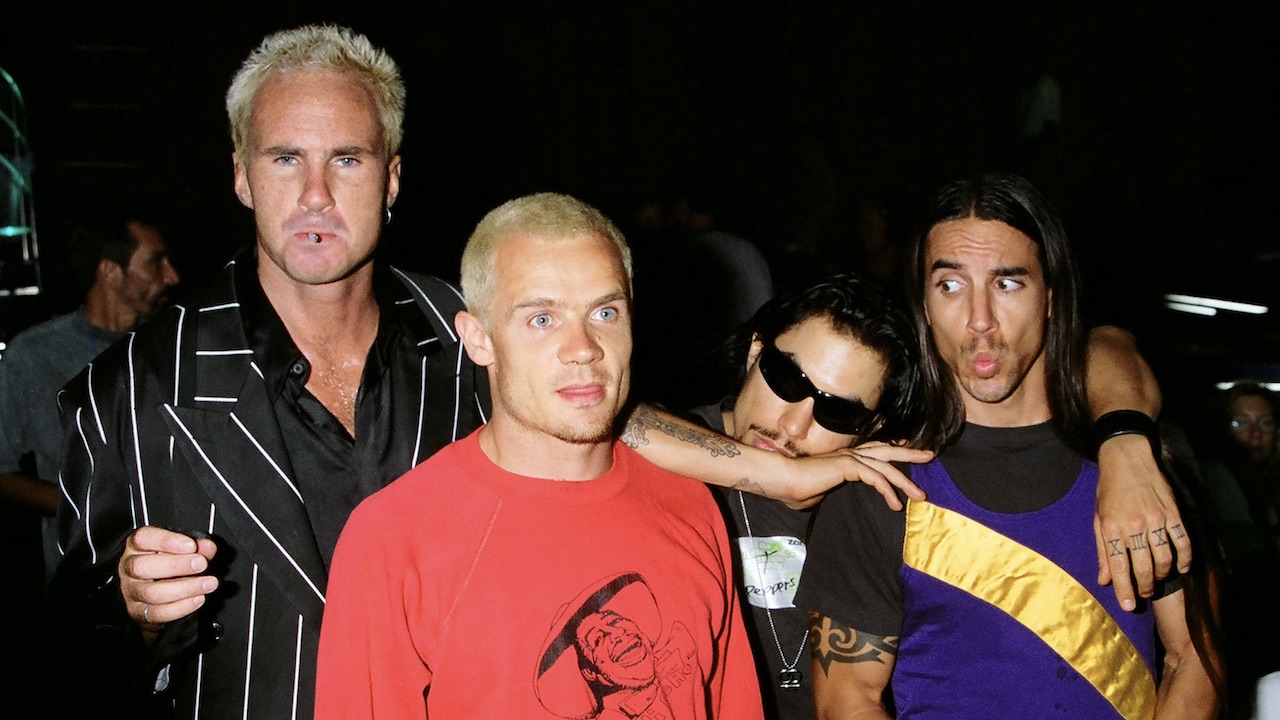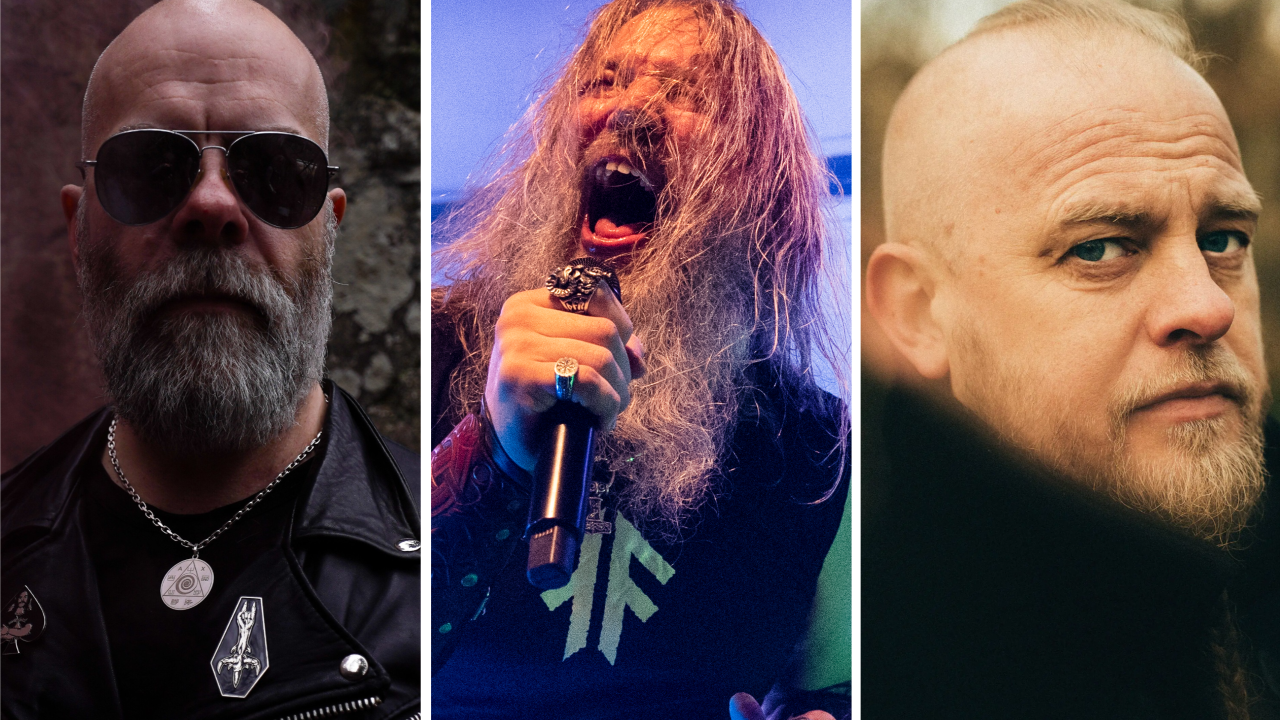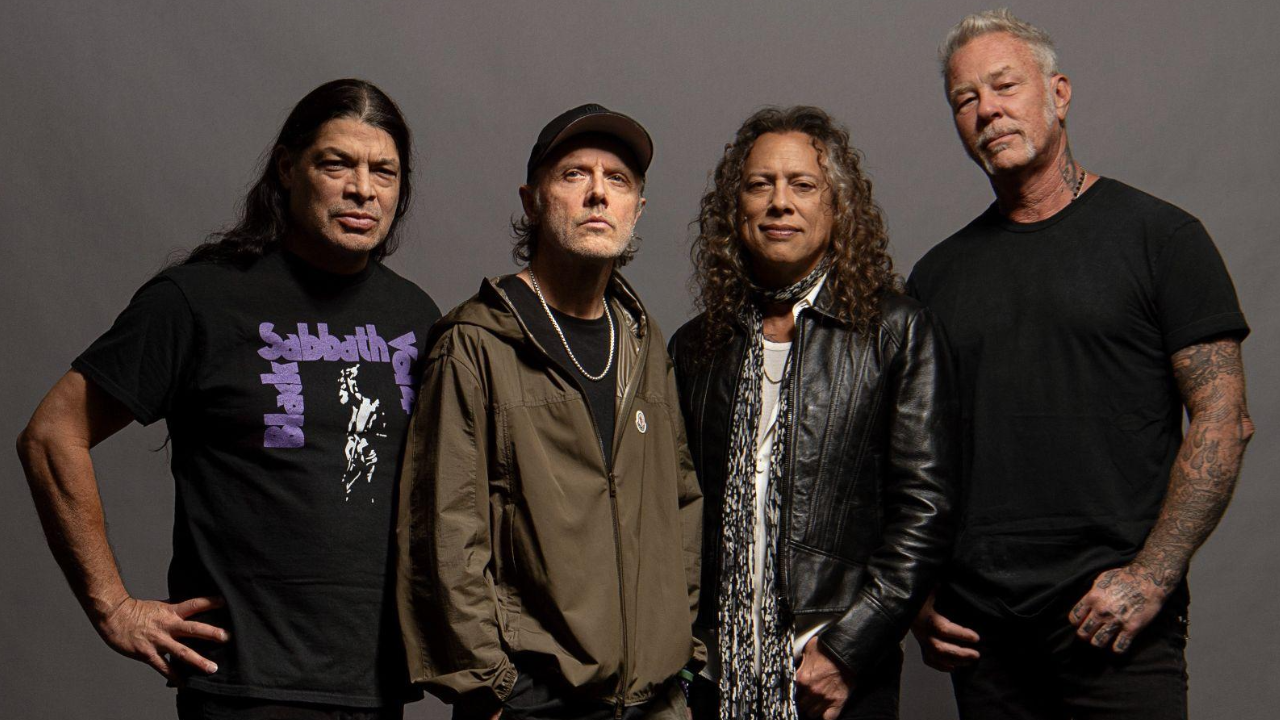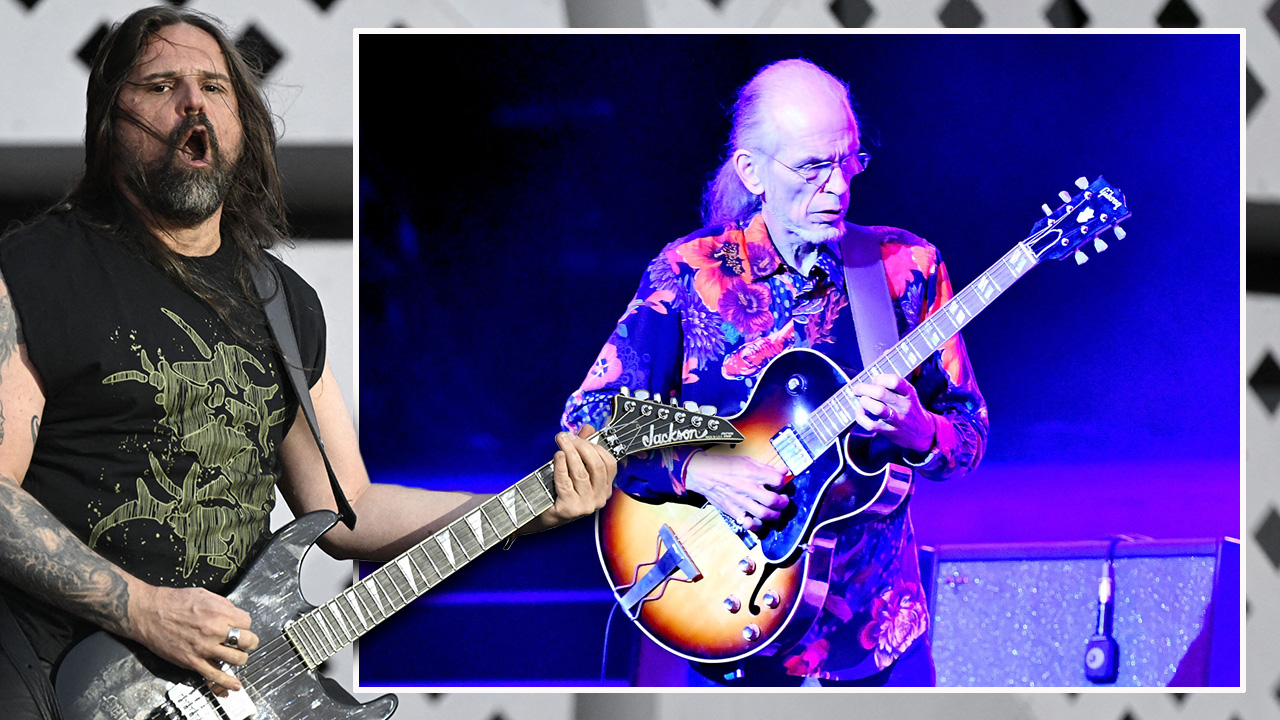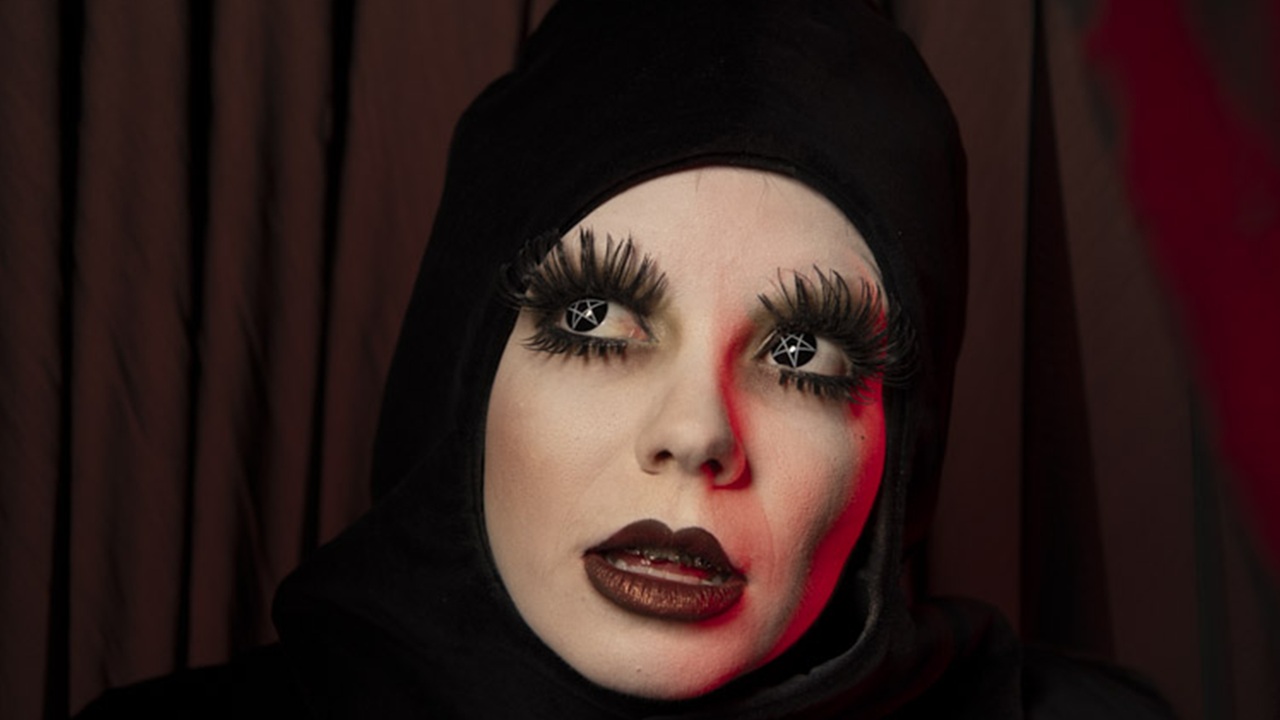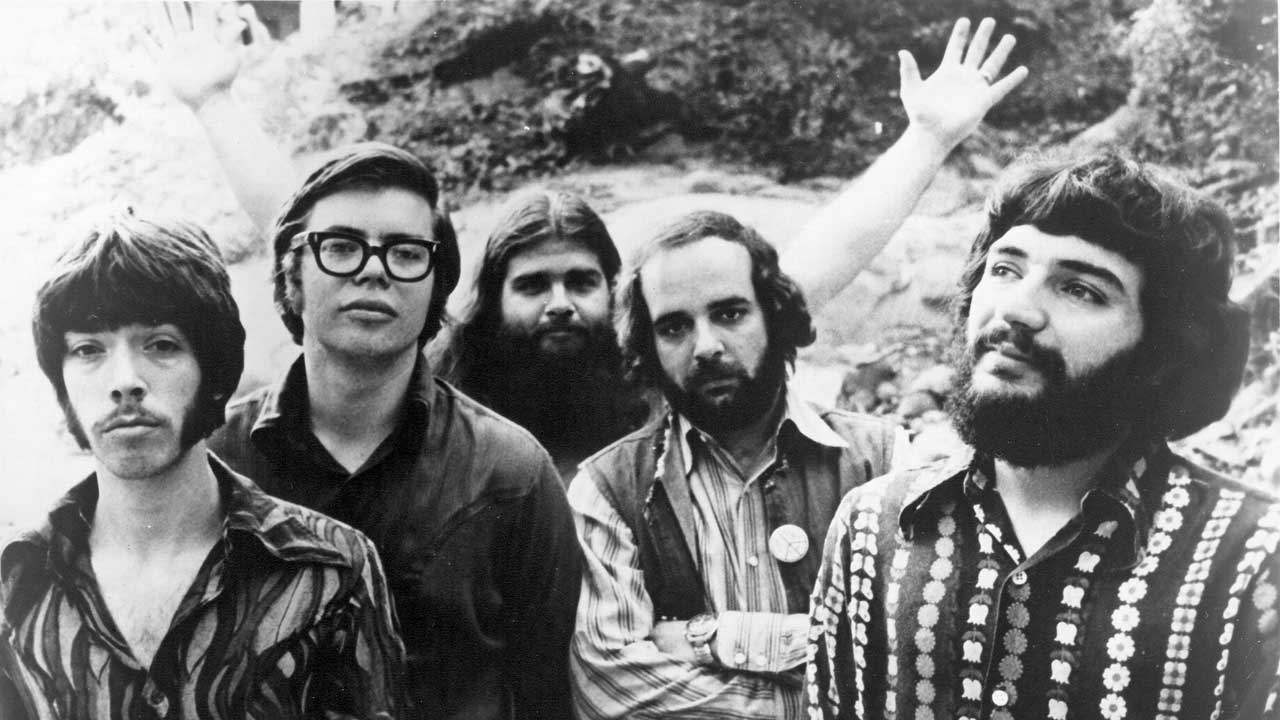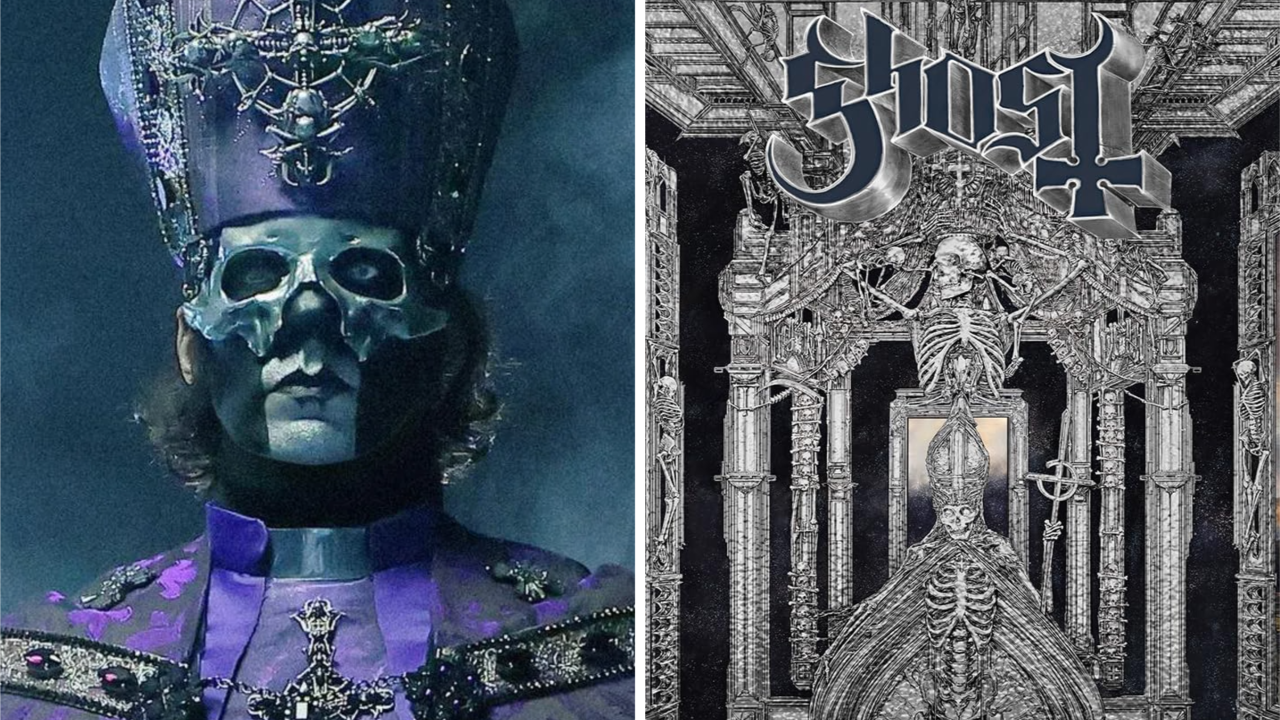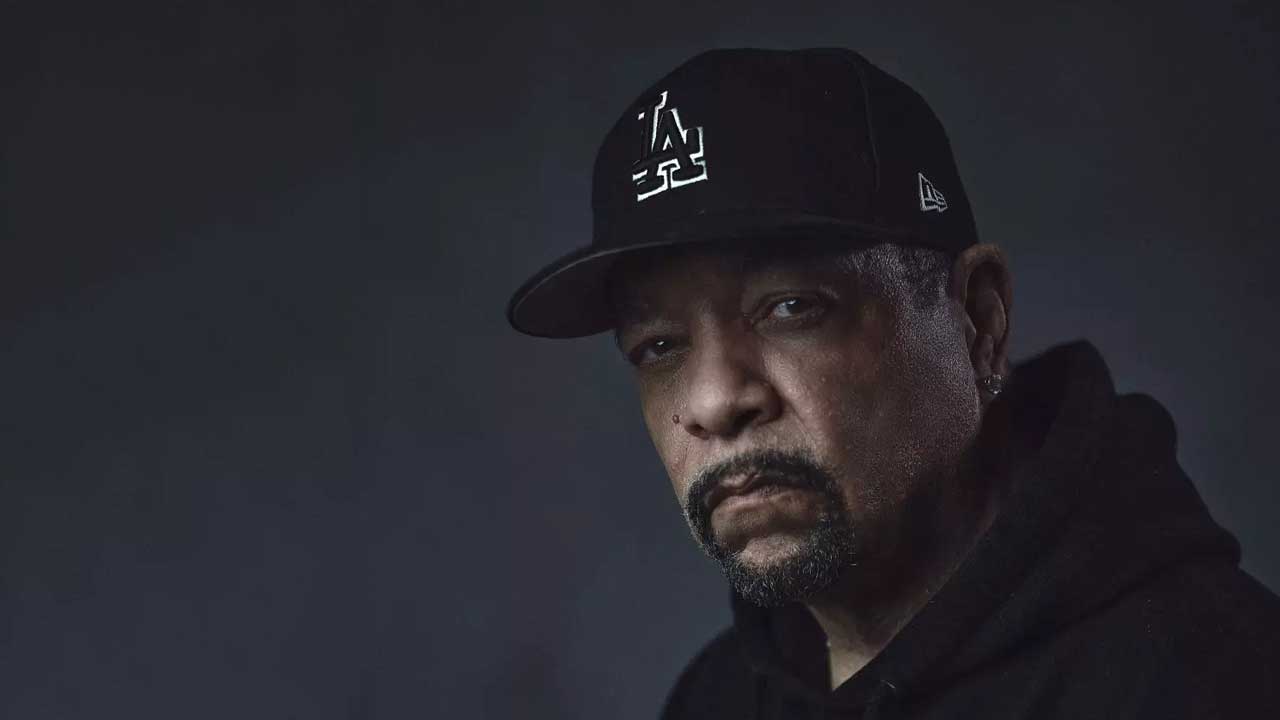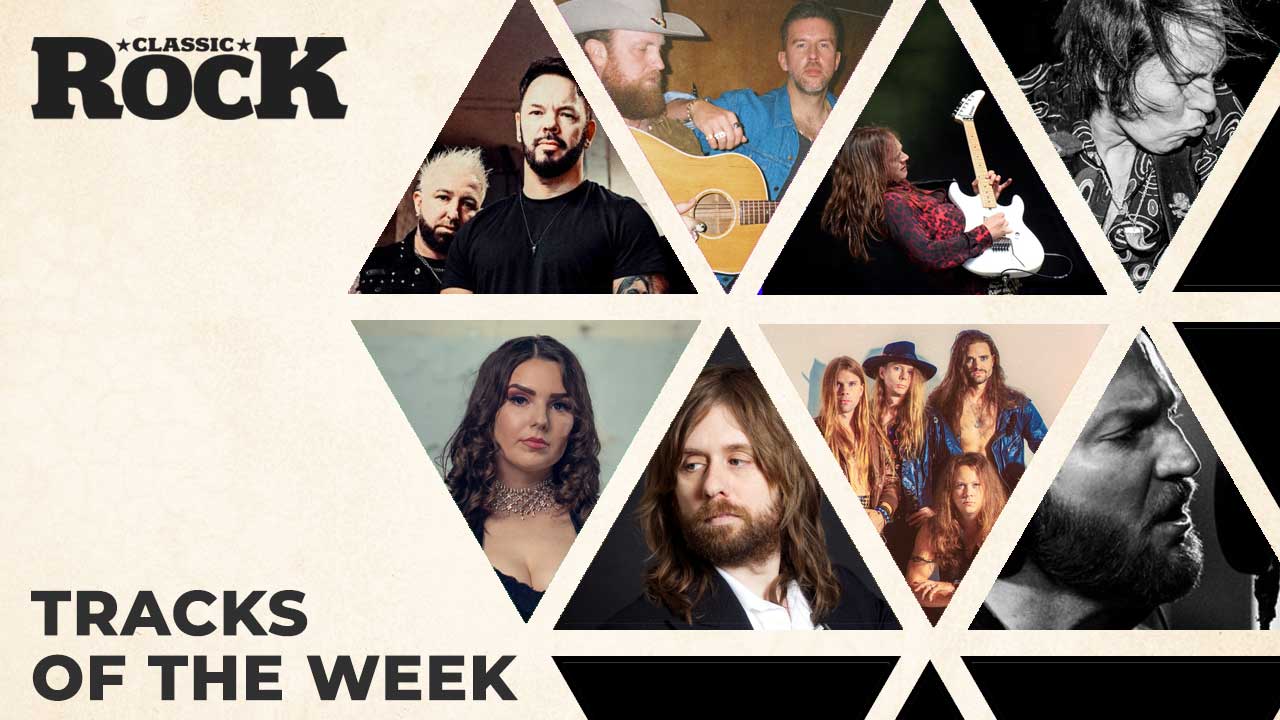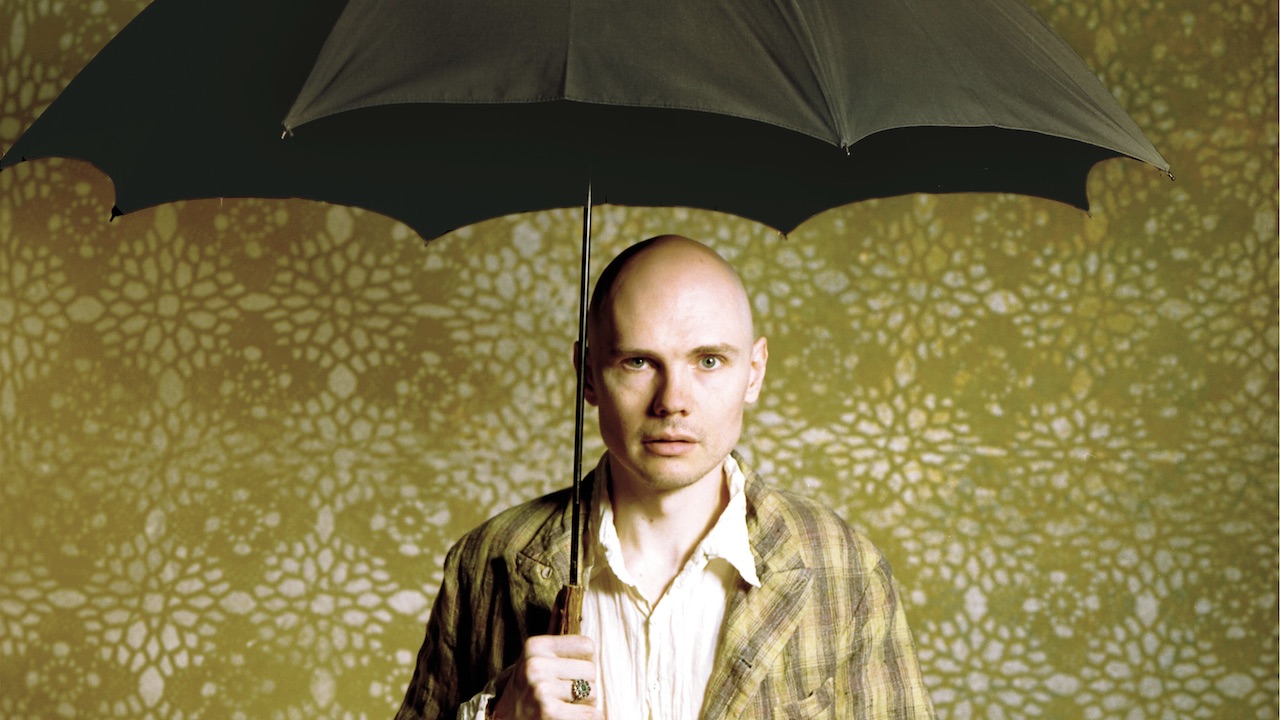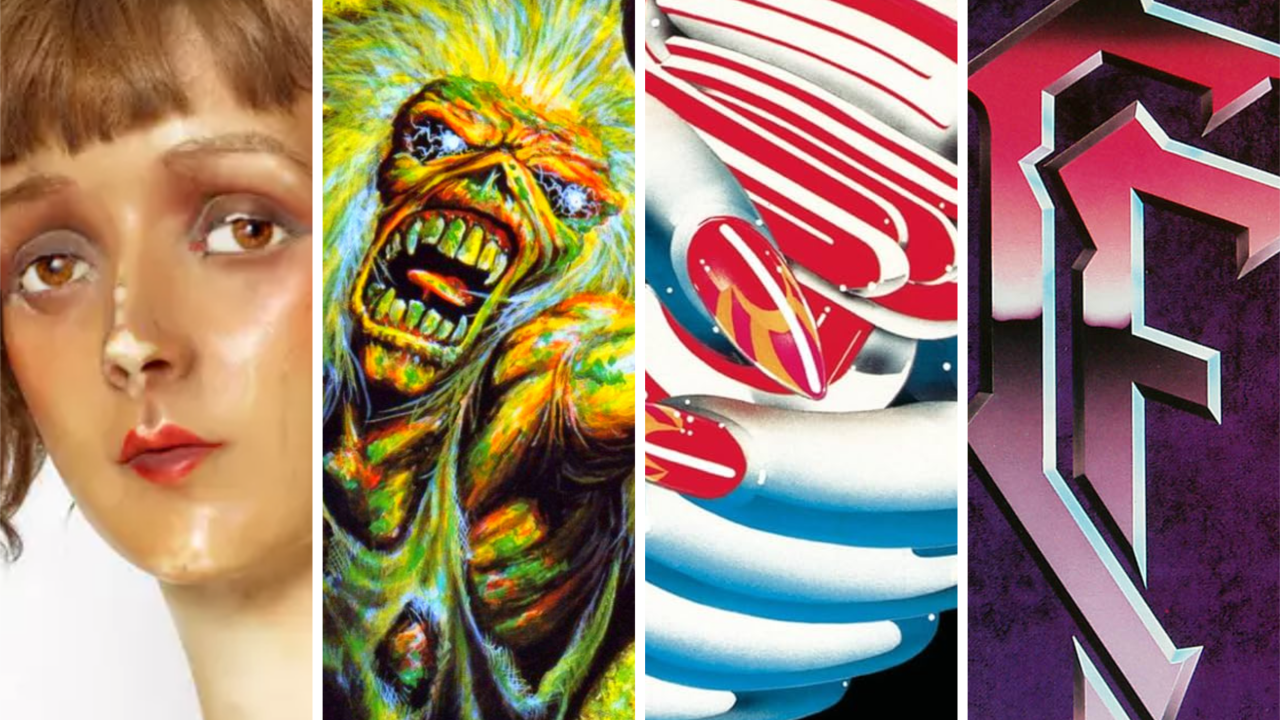Dave Mustaine is alive and well. Two years after doctors gave him the all-clear following treatment for throat cancer, he’s looking good for his 60 years as he sits in his home office in Tennessee talking to Classic Rock about his life and career as the leader of Megadeth. His face has a few creases, his long hair, once flame-red, is now a shade of grey.
But after 20 years of sobriety he looks a whole better than he did the first time I interviewed him, back in 1988, when Megadeth were touring the US as the opening act for Dio. In those days Mustaine had the ghostly pallor that comes with an addiction to hard drugs. As he says now, with a thin smile: “That was a long time ago.”
David Scott Mustaine was born on September 13, 1961 in La Mesa, California, a small city east of San Diego. There he endured a difficult childhood; his parents separated when he was four, and his father John was a troubled man whose alcoholism led to his early death. As a teenager Mustaine also developed a taste for alcohol, along with drugs and heavy metal.
He was drawn to the raw power of British bands – Judas Priest, Iron Maiden, Motörhead – and playing guitar came easily to him. In 1981, when Mustaine was 19, his first band Panic split up after their drummer Mike Leftwych was killed in a car crash. It was a tragedy that had a profound influence on Mustaine’s life. The disbanding of Panic led him to seek out a new opportunity, and he found it in a new group from Los Angeles called Metallica.
Mustaine was in the band as lead guitarist for less than two years, but in that time he played a key role in creating a sound that would revolutionise heavy music: thrash metal. Eventually his violent drunken rages proved too much even for a band that was nicknamed ‘Alcoholica’.
Mustaine was dismissed in 1983 as Metallica prepared to record their debut album, Kill ’Em All. He was replaced by a more stable character, Kirk Hammett. But in Mustaine’s absence the first two Metallica albums included songs he had co-written, most notably The Four Horsemen and Jump In The Fire from Kill ’Em All, and the title track of 1984’s Ride The Lightning.
And when Mustaine made his comeback – bringing Megadeth to the global stage in 1985 with their debut album Killing Is My Business… And Business Is Good! – he declared war. As he said of his former band: “I was out for blood – theirs.”
In the end it was a war he could never win. For all Mustaine’s unique qualities as a songwriter, guitarist and vocalist – as illustrated on classic Megadeth albums such as Peace Sells… But Who’s Buying? (1986), Rust In Peace (1990) and Countdown To Extinction (1992) – the band’s record sales of 50 million, while monumental, are nevertheless eclipsed by Metallica’s 125 million.
But when talking to Classic Rock today he prefers not to dwell on the negatives. He speaks with pride of what he has achieved with Megadeth. He is bullish about his time in Metallica, yet magnanimous in what he says about them now. Above all else he is proud of how he has turned his life around.
But the spikiness of the young Dave Mustaine still remains. It’s apparent when he’s questioned about his wild years, or his recent decision to fire David Ellefson, the bassist who was a member of Megadeth for the best part of 30 years. It’s also evident in an aggressive new Megadeth album, which he has titled, in classic fashion, The Sick, The Dying… And The Dead!

Let’s start in the here and now, with the new album. How would you describe it?
Long overdue. It’s six years since the last one. Nobody planned on us having the pandemic, and I certainly didn’t plan on getting cancer. But I’m very happy with this album. I’m doing what I like most, and that’s playing guitar.
It’s a heavy album, with heavy themes in songs such as Psychopathy, Junkie and Dogs Of Chernobyl.
Right. Megadeth has songs about war, politics, the occult, songs about life and death, a few fantasy songs, and back in the day some typical growing-up songs about fast cars and partying. But with two hundred songs, you pretty much run out of things to write about after a while!
Is there a political message in this album?
That’s not how I write. I write like a storyteller. I’m not telling people how to think. It’s up to the listener to decide for themselves. And I know that if I try too hard with lyrics, I fail. It’s like that scene in Purple Rain where a guy says to Prince: ‘The only one that understands your songs is yourself.
On May 14, 2021, during the recording of the new album, you fired David Ellefson after sexually explicit videos of him were posted on Twitter. After all that you’d been through with him, how difficult was it for you to tell him go?
I’d rather not talk about him. This is something that’s in the rear-view mirror and I have no interest in talking about it at all.
Okay, let’s move on. With Ellefson gone, you brought in Testament bassist Steve Di Giorgio to play on the album. But he’s not joining Megadeth on a permanent basis.
He would have been a great player for us to have, but the active poaching of guys from other people’s bands doesn’t sit well with me. When Metallica did that with Cliff [Burton], to get him out of the band Trauma, that was a real shitty feeling for me, and I never forgot that. I know I wouldn’t like it if somebody came and took one of my band members out.
Of the current Megadeth line-up, two guys have been with you for a few years: guitarist Kiko Loureiro and drummer Dirk Verbeuren. For touring you have bassist James LoMenzo, who was previously a full member of the band. So many people have been in and out of Megadeth over the years. Does it still feel like a band to you, or more like your solo project?
There’s a spirit that Megadeth has, and when we get together we all embrace that. It’s not that fans are ascribing to me, it’s what Megadeth is. Most often you can change some of the players in the band but you can’t change the voice. Look at Van Halen. I love Sammy Hagar, but for me, him being in Van Halen makes as much sense as Axl Rose being in AC/DC.
It’s not how I’m used to listening to this. It’s a weird thing, changing the voice. It’s like if you take a drink of water and it’s alcohol – not what you expected. So with Megadeth, I’m the voice, I’m the principal songwriter, but I’m certainly not ‘the band’.
Speaking of Sammy Hagar, he makes a guest appearance on your new album, playing guitar and singing on a version of his 1979 song This Planet’s On Fire (Burn In Hell).
I’ve loved Sammy’s voice ever since I heard the first Montrose album. People always talk about Rock Candy as the best song on that record, but my favourite was Make It Last. In fact, with Panic, the band I was in before Metallica, we did a couple of Montrose songs live: Bad Motor Scooter and I Got The Fire.
The other guest on the new album is Ice-T, rapping on Night Stalker.
We’ve been friends a long time. I played on a track of his, and now he’s on mine. He’s a good guy, but his music is very intense. When he did that song Cop Killer [from Body Count’s self-titled debut album in 1992], a lot of people were scared.
You yourself had a fearsome reputation in the early days of Megadeth. An angry young man, out of control.
A lot of that was a character, an on-stage persona. It was getting out there and tightening your belt and taking a swig and just screaming at whoever would listen.
But it wasn’t just an act. You’ve said before that from an early age you carried a lot of anger inside you.
True. As a kid I didn’t want to stay between the lines when I coloured. I didn’t really want to colour – I wanted to burn the fucking book up! I wanted to the rule the world, and as soon as I picked up a guitar that was what I wanted to do. I was beating my guitar up, doing pyrotechnics on the strings.
You’ve said your father was an alcoholic. Have you ever felt that your descent into alcoholism and drug addiction was in some sense pre-ordained?
I was always curious about drinking, and it tried to lure me into that abyss. There’s a lot of other people from that period that didn’t make it out alive, but I’m still here to tell the tale. I consider myself to be really happy. I have a wine company, and I’ll sip the wine to taste it when we’re doing new blends.
And when my son Justis got married, it was balls-hot and I wasn’t going to just sit out in the sun drinking water, man! But the days of looking for hookers to help me find some heroin in the Moulin Rouge district? Those days are over. And honestly, I don’t know why you brought that up. It’s kind of unfair. I mean, fuck, it’s not very flattering.
You weren’t shy about telling your drug stories in your autobiography ten years ago. On the contrary, you put it all out there in lurid detail.
My point is, do we want to regurgitate stuff or do we want new stuff, seeing as I’m living and breathing and I’ve got new things to talk about? It’s your call. And however you write it, I just hope that nobody who looks up to me would read this and think that something like heroin is the answer. Because that’s how I got tricked into it. Gar [Samuelson, former Megadeth drummer] told me if I wanted to be great I had to do it.
You’re clearly a better role model than he was. Is that something that comes from having children?
Maybe. I just remember when Megadeth was featured in VH-1 Behind The Music and my son was still in school, and he came home crying because the other kids were teasing him about it. I told him: “People are gonna say stuff about your dad and you’re gonna have to get used to it. Just be strong.”
People said bad stuff about my dad too, and it hurt when I heard my mom say it. I would think: “Did you ever try to do an intervention on this guy?” And I don’t know that they did. All I know is I wasn’t allowed to see him, ever.
You’ve talked about music as a form of escape for you as a kid. What was it about British heavy metal that resonated so powerfully?
After what I said earlier I can’t believe I’m saying this, but I was trading bags of marijuana to this girl who worked at a record store and she would give me import records, and almost everything was British. So I got Maiden, Motörhead, Budgie… And there was a rawness to it, while a lot of American music seemed to me over-produced.
There’s a Budgie song where you can hear the drummer counting off on his hi-hat and they’re talking in the background, and I thought: ‘That is so cool. They’re right there.’ I was so sad to hear that [Budgie bassist/vocalist] Burke Shelley died this year.
In the last months of his life, Burke gave an interview to Classic Rock in which he spoke of his faith. “I’m not frightened of dying,” he said. “I want to spend my eternity with Jesus Christ in Heaven.”
Me even saying I have faith has created so much backlash from fans and haters. But when you tell me that Burke had faith and found peace, that makes me happy. It’s weird how other people are. You think they would be happy for you. But they’re not. You’ve just got to learn to accept that.
Did you have any doubts about going public as a Christian?
No, because it just kind of slipped out. I was talking about it matter-of-factly, like I’m talking to you now. It wasn’t something that I thought would be such a big fucking deal. If someone says they’re aCatholic, nobody cares. But if you say you’re a Christian it’s like you’ve got two heads! So now I just keep it to myself. I don’t tell people how to live. I’ve been down the paths of doing black magic and witchcraft, and it really fucked my life up for a very long time. But I’m happy where I’m at right now.
That interest in black magic informed a few of the early Megadeth songs. Would you be comfortable singing those songs now?
Yeah. We’re going out on tour and we’re playing songs off every record. There were people saying: “Dave won’t play The Conjuring because he’s this other guy now.” And I’m like: “Excuse me?” So what was it that led you to embrace Christianity at this stage? It was really simple. I was in pretty bad shape, and I said: “What have I got to lose?” Those were the six words I said.
There’s something you said in your autobiography, Mustaine, that seemed a bit strange…
Far be it for me to ever be called strange, right? What was it?
You said of your time in Metallica: “I was the leader of the band.” That’s quite a statement to make.
Why?
Because the guys who founded that band, James Hetfield and Lars Ulrich, are such alpha males.
Oh no. I am clearly the alpha male between the three of us. Why did I have to do everything when I was in the band? Why did they always ask me talk to the promoters and collect the cash? Why was I the one who had to do the fighting? Why did I have to talk in between songs?
After you were kicked out of Metallica, the sense of betrayal drove you on, but the bitterness stayed with you a long time.
How can you expect a boy who’s twenty and the guitar player in one of the biggest new things in the world to have a grasp on reality? Everything from that point forward was a fucking feud. Everywhere I went it was: “So, how’s everything going with Meta… er, Megadeth?”
Is it difficult for you to talk about Metallica?
No. I really don’t give a fuck. And you know what? I love those guys. I sent a text message to James just a couple of days ago after he’d said that he was insecure about his playing. I said: “James, I love you and I really like your playing.” He didn’t answer. Of course not. Why would he? The point is I wanted him to know that I’ve had those feelings too, but I don’t now.
I must remind you that when I joined Metallica, James did not play guitar. He just picked it up and started playing when I was in the band. But let’s be honest, James is one of the best metal guitar players in the world. So for him to have those feelings, that’s a lie, because he’s a mind-blowingly talented guy. So I just felt I needed to say something to him. I didn’t tweet it. I didn’t want anybody to know what I said. But I’m telling you because, hey, you brought it up!
Have you achieved all that you dreamed of with Megadeth?
I had a plan: to be in the biggest metal band in the world. I don’t know, maybe it’s still ahead of me. But as far as American metal bands are concerned, there’s not many bigger than Megadeth. I would say that’s a great feat.
In your personal life, what are you most proud of?
Being married, successfully, for more than thirty years, and raising two great kids. I think any good parent is going to want their ceiling to be their children’s floor. With my children I’ve been superstrict, and it’s paid off. We now have two really well-adjusted adults. And for me, if you get to this age, you’ve done something right.
You’ve made it this far, but some didn’t. Cliff Burton died in 1986, Gar Samuelson in 1999, and Nick Menza, another of Megadeth’s drummers, in 2016. And back in 1992 you almost died of a drug overdose.
When that happened I don’t know how long I was out, but I didn’t see the light. Like I said earlier, you can get drawn into that abyss. Being curious is one thing. Dying from it is another.
It’s coming up to forty years since you formed Megadeth, and performing this kind of music is physically demanding work. Do you feel it more now?
Sometimes it’s hard. It’s been eating up my hands, and there’s a lot of joint damage from the head-banging over the years. We all have it – James [Hetfield] got it, Tom [Araya, formerly of Slayer] got it. The three of us have all had that surgery. But that’s life, it changes as you get older. And it helps that I’ve been able to keep my personal life separate from my job. I’ve got a lot of friends who have nothing to do with the music world, and that’s a really cool thing. And so every time I go on stage I’m able to just unload and give every single thing that I have.
In what you’ve said now about James Hetfield, it appears that you’ve made peace with many people you’ve fallen out with in the past.
What’s the old Irish saying? If you carry a grudge you better dig two graves. I got enough stuff making me go grey. I got a daughter in her early twenties who’s dating – I don’t need to worry about anything else!
Looking back at your life now, do you have any regrets?
Yeah. I regret not saying goodbye to Gar. When we parted ways it was really ugly, because Gar and Chris [Poland, then Megadeth guitarist] were selling [the musical equipment] for heroin. Every time we get ready to go on the road we had to go to all the neighbourhood pawn shops to get that stuff back. So when we parted ways it was bad.
And then many years later, out on tour, we went through Florida one time and I saw Gar and he looked really different – and not in a good way. His hair was super-long and his eyes were really sunken. He ended up dying from liver failure. I wish I would have known and been able to talk to him a little bit more. It was always: “Hey, I’ll call you in a couple of days.” And you don’t. So that’s a regret for me.
That said, you seem happy with where you’re at now.
Well, there’s a saying we have here in Tennessee: that dog don’t hunt. And there’s another around here: if you’re going to run with the big dogs, you need to learn how to piss in the tall grass.
That’s an odd expression. Can you explain how it relates to you?
Let’s just say that it takes a little bit more to get me riled up nowadays. In the past, when people used to talk shit about me, I would look at who it was and I would think: “This guy is saying something and he wants me to respond because he’s got a new album coming out. He wants some cheap publicity.” Usually whenever I say anything, it’s back at someone else. Very rarely have I started shit, you know? But someone would say something and then I’d say: “Alright, game on!”
But not any more?
You mean would I still do that? Given the necessity, I think I’m still capable of being like that. If I hadn’t got a great new record and I wanted that cheap publicity, I could start talking shit about people and blah blah blah. But, fortunately for me, I don’t need to. This new Megadeth record can stand on its own two legs.
So with you and Megadeth in good health, and your life running smoothly in a way that few could have foreseen back in the eighties, what does the future hold for Dave Mustaine?
I would love to spend the rest of my time being available to younger bands to help them make the right decisions, whether that’s telling them what I did, or what I did not do. One way or the other, what I did is going to have a result that they’re going to want or not want. I would love to be able to use all this great experience that I’ve got. I don’t want to take it to the grave with me. My son’s in management and my daughter is a singer but she doesn’t play metal, so it’s just going to get wasted, unless…
Unless what?
Unless I have a little redheaded grandson that plays a Flying V! You never know.
The Sick, The Dying… And The Dead! is out now.


